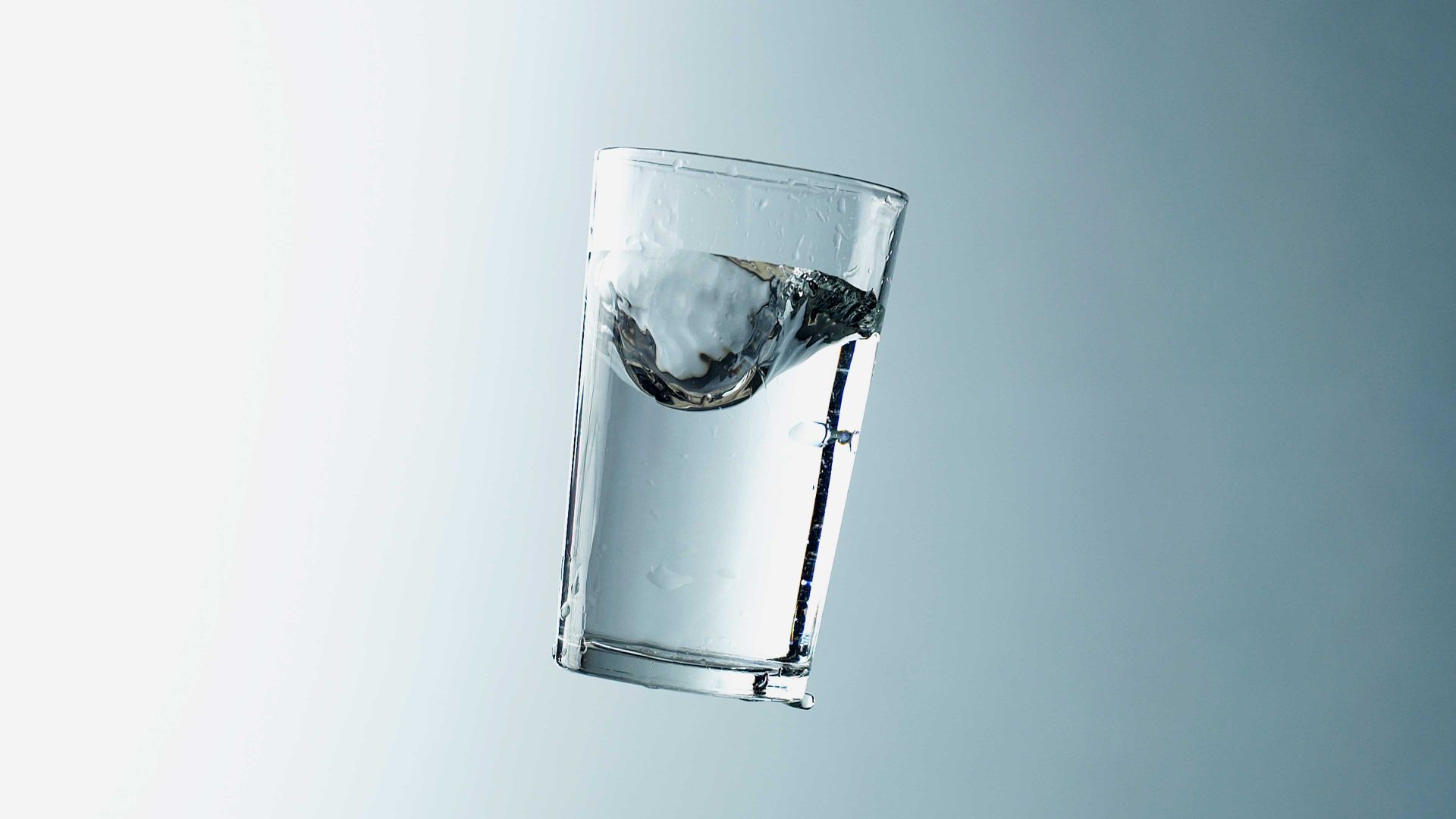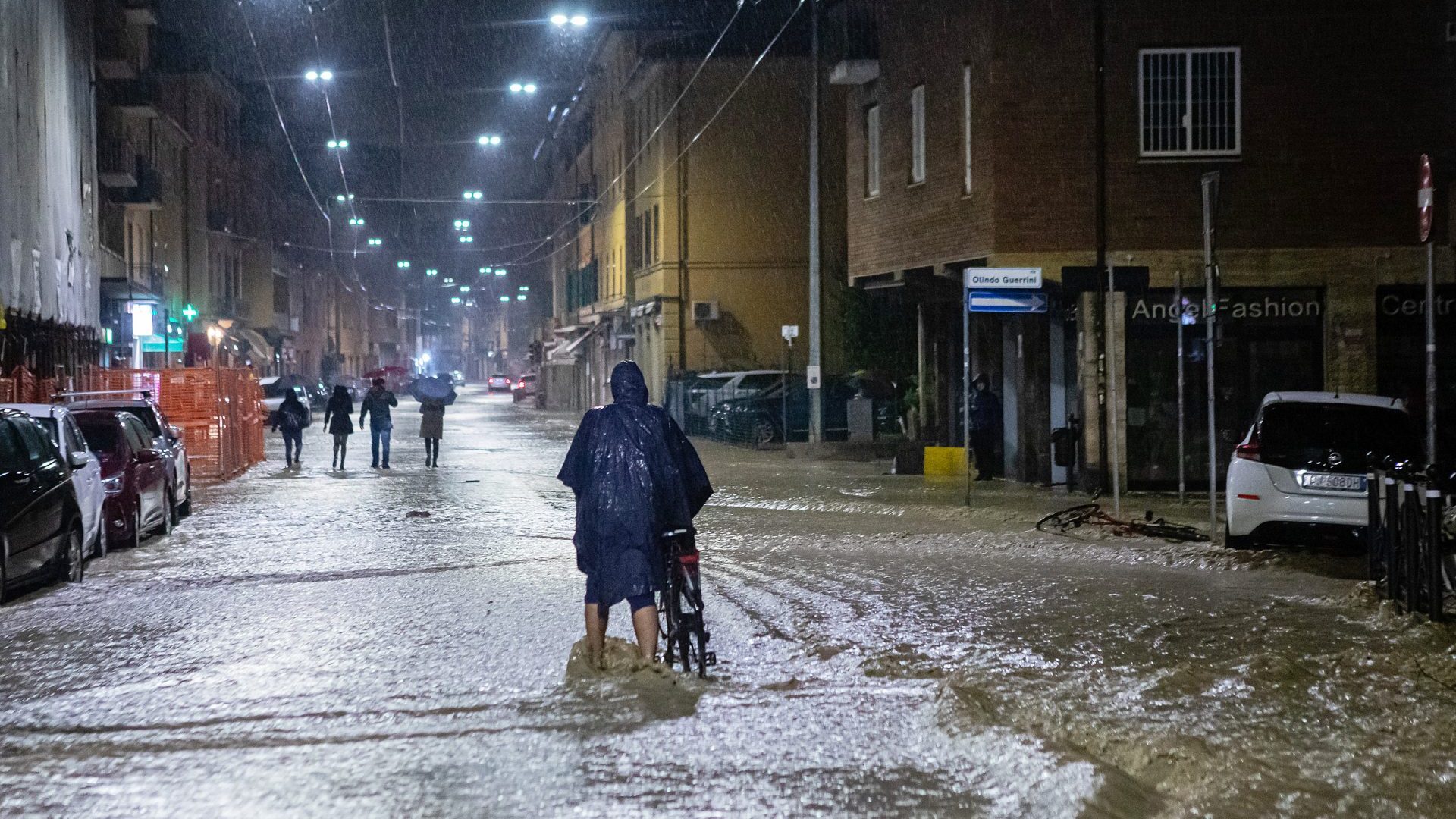Given that water is found all over the planet and is vital to our existence, you might suppose that it is now thoroughly understood as a chemical substance. After all, it’s hardly the most complicated of molecules: as its chemical formula (H₂O) indicates, it is merely an oxygen atom with two hydrogen atoms attached. Yet water remains in some respects an enigmatic and even controversial substance.
At the root of what makes water complicated is the way the H₂O molecules stick to one another. In what scientists call simple liquids – substances like liquid nitrogen or liquid carbon dioxide – the molecules just bump up against one another randomly. But two water molecules can stick to one another via a weak chemical bond called a hydrogen bond, first identified in the 1920s. Each H₂O molecule can form four hydrogen bonds with others, which link the molecules into a vast network resembling one of those polyhedral rope climbing nets in children’s playgrounds. These bonds are quite weak and are being made and broken all the time, so that the molecules can hop around the network.
Describing the structure of this ever-changing network is quite a challenge, which means that there are still open questions about the molecular nature of water. For instance, some researchers think that if water is carefully cooled below freezing point without it actually freezing, and at the same time is squeezed to high pressures, it can separate into two different types of liquid with different densities, rather like oil separating from vinegar in salad dressing. It’s very hard to test this experimentally, because the water is apt to freeze.
There are also questions about how the network of hydrogen bonds gets rearranged very close to dissolved molecules, especially around biological molecules like proteins and DNA. Such “restructuring” of water in living cells could have important consequences for how biomolecules interact with one another in the molecular processes on which life depends. This means that the question of whether life could exist on other planets without liquid water – say, in the liquid hydrocarbon lakes of Saturn’s moon, Titan – is a rather subtle matter: it’s not obvious that any other liquid would be as “sensitive” and “responsive” to dissolved molecules as water is.
Water’s complex molecular structure explains why it behaves in ways that other liquids don’t. For one thing, it expands when it freezes – this is why water pipes are apt to crack when frozen – whereas most liquids get more compact and denser. So ice floats on water: that the ice cubes in your cocktails don’t sink should surprise us if we weren’t so used to it.
And because it takes energy to break hydrogen bonds, water can absorb lots of heat without warming up very much: it has what scientists call a large heat capacity. As a result, ocean currents carry vast amounts of heat, redistributing it around the planet. The differences in temperature between the tropics and the poles would be larger if ocean water didn’t have this equalising influence.
All this complexity in water’s molecular nature makes it a substance ripe for pseudoscience. Whether the notorious “memory of water” warrants that label, it is dismissed by all credible experts. The idea stems from a claim made by French biologists in 1988 that water can retain an imprint of biological molecules dissolved in it (perhaps somehow encoded into the hydrogen-bond network) even after the molecules themselves have been diluted away, so that the water alone can replicate their biological effects.
The idea was seized on to validate the claims of homeopathy. Even though it made no scientific or even logical sense and the alleged evidence couldn’t be verified, the memory of water became a trope that refuses to die.
Unanswered questions about water’s properties leave room, too, for quack claims of how water can be given special “hydration powers” by treatments that allegedly alter its molecular network – such as Penta water (marketed as “restructured” until legal challenges for false advertising) and Kabbalah water (spring water treated with “quantum resonance technology” to “restructure the intermolecular binding”).
These might be lucrative scams, but it’s probably fruitless for scientists to rail against them. They speak to a deep-seated cultural impulse to award water with magical, even sacred powers of healing. And that’s complicated. There may be no scientific reason to afford water such power, but the instinct to see it as something special and worth respecting is surely one we could do with a little more of today.




